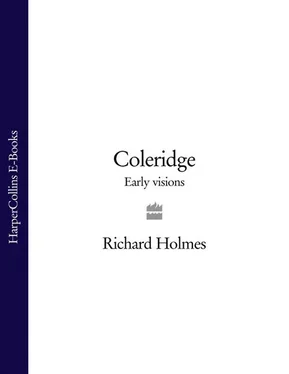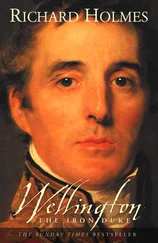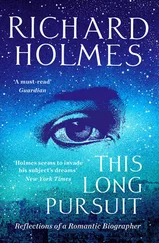He was petted by his sister Nancy, who used to sing him melancholy ballads on winter evenings:
Ballad of ship-wreck’d sailor floating dead, Whom his own true-love buried in the sands! 14
But he was teased by the older schoolboys, and sibling rivalry soon surfaced with his daring, extrovert brother Francis. There were angry disputes for the affection of his nurse, Molly, an old family retainer, much loved by all the other boys. In the autobiographical letters written at Nether Stowey in his twenties, *Coleridge analysed this with his customary psychological acuity, finding in it the beginnings of his inner imaginative life, a child escaping into his fantasy world.
Molly, who had nursed my Brother Francis, and was immoderately fond of him, hated me because my mother took more notice of me than of Frank – and Frank hated me, because my mother gave me now & then a bit of cake, when he had none…So I became fretful, & timorous, & a tell-tale – & the School-boys drove me from play, & were always tormenting me – & hence I took no pleasure in boyish sports – but read incessantly…And I used to lie by the wall, and mope – and my spirits used to come upon me suddenly, & in a flood – & then I was accustomed to run up and down the church-yard, and act over all I had been reading on the docks, the nettles, and the rank-grass. 15
The church and churchyard of St Mary Ottery, immediately outside the School House across the sunken lane, became a magic world to little Sam amidst these persecutions, mopings and tantrums. He would later strongly identify with another persecuted poet, Thomas Chatterton, who created his own imaginary world in St Mary’s Redcliffe church, at Bristol.
St Mary Ottery was an evocative place, a fourteenth-century foundation modelled by Bishop Grandisson on Exeter Cathedral, a collegiate building much larger than an ordinary parish church. It dominated the Cornhill and the entire town, with two huge granite bell-towers whose peals could be heard throughout the valley of the Otter.
Outside, the old gravestones stood at angles in the sunlight. Inside were many shadowy wonders: corbells in the shape of owls and elephants, a globe mounted with an heraldic eagle, and the medieval tombs of the Grandisson family. On one side of the nave, low enough for a child to climb on, was the tomb of the crusader, Sir Otho de Grandisson (died 1359), in helmet and chain-mail, holding his broadsword; on the other, that of his wife Lady Beatrix (died 1374), with her dogs at her feet.
In the gallery of the south transept hung Bishop Grandisson’s enormous mechanical clock, with its square wooden face painted bright blue. It showed the time with an intriguing system of planetary symbols, based on the Ptolemaic model, with a golden sun, and silver moon, and a gilded star, moving steadily round the gleaming dial of heaven. Such images sank deeply into the child’s mind, unconsciously reappearing in the great ballads written twenty years after.
The moving Moon went up the sky
And nowhere did abide:
Softly she was going up,
And a Star or two beside. 16
In his autobiographic poetry Coleridge transformed his unhappy memories into an idyllic Romantic version of his “native home”. In “Frost at Midnight”, written in 1797, the bells of St Mary’s are given a thrilling, other-worldly quality, far removed from his playground miseries. The endless carillons of feast-days and fair-days, when the chimes were rung for twelve hours at a stretch, are made to promise a dream-like expansion into future happiness. He was here describing his memories as a teenage schoolboy in London, long after the “exile” from Ottery had occurred, and the poetic myth of his childhood was already being prepared for his own son, Hartley.
With unclosed lids, already had I dreamt
Of my sweet birth-place, and the old church-tower,
Whose bells, the poor man’s only music, rang
From morn to evening, all the hot Fair-day,
So sweetly, that they stirred and haunted me
With a wild pleasure, falling on mine ear
Most like articulate sounds of things to come! 17
There is perhaps a hint of bitterness in the slight rhythmic dip in the third line, where Coleridge may really have been thinking of the “poor boy’s only music” at Ottery, but otherwise the verse rises with an unbroken surge of Romantic longing to the climactic outburst of syllables in the last line, “articulate sounds”, which has an almost religious force. (It is a note that Wordsworth was to explore fully in The Prelude of 1805.)
In reality, for little Sam the bells brought scant release. Because of his small size and difficult temperament, he was kept on at dame-school until the age of six – not to be “trusted among my Father’s School-boys”. 18By then his elder brothers, tall distant figures, were going out into the world. William left Wadham College, Oxford, and became a schoolmaster in Hackney, aged twenty-three. James – a stocky, red-faced, resolute young man – left Ottery aged sixteen, with ten guineas sewn into the back of his waistcoat, to join the ranks of the 6th Regiment of Foot; then Edward, “the Wit of the family”, left for Pembroke, Oxford. 19Coleridge significantly put down these departures to his mother’s influence in family affairs. She was, he said dispassionately, “an admirable Economist, and managed exclusively”. 20“My Father…had so little of parental ambition in him, that he had destined his children to be Blacksmiths etc, & had accomplished his intention but for my Mother’s pride & spirit of aggrandizing her family.” 21
This was almost certainly untrue of the Reverend John, whose whole career showed a headmaster’s natural drive for distinction. His academic successes were renowned throughout the county. But Coleridge’s feelings for his mother were to become ambiguous, and finally bitter. By comparison his father – his lost, beloved father – was to be transformed into a humorous paragon of gentleness and understanding, utterly without worldly ambitions.
During these difficult childhood years, after being the “darling” who sat, as he fondly recalled, “at my mother’s side, on my little stool, to read my little book, and to listen to the talk of my elders”, he clearly felt he became at first an anxiety, and then a disappointment, to her. 22He felt this rejection as deeply as anything in his life, and at sixteen would say of the mother of a schoolfriend in London that she “taught me what it was to have a mother”. 23In later life, he often repeated this sense of looking for mother-substitutes. At twenty-nine, he told his friend Tom Poole that Mrs Poole “was the only Being whom I ever felt in the relation of Mother”. 24In middle age the search for a lost mother continued, with strange consequences. 25
Exactly how this process of alienation occurred is difficult to say, for Coleridge wrote and talked more and more about his father, and less and less about his mother as he grew older. But he seems to have felt, very early on, that in her eyes by comparison with his brothers, he was already a failure by the time he left Ottery. There are no contemporary accounts of mother and son together in these early days. But some years later, when he revisited Ottery in the autumn of 1799, there was a revealing incident which was recorded by his friend, Robert Southey. “We were all a good deal amused by the old lady,” – Ann Coleridge, aged seventy-two, was by then rather deaf – “she could not hear what was going on, but seeing Samuel arguing with his brothers, took it for granted that he must have been in the wrong, and cried out, ‘Ah, if your poor father had been alive, he’d soon have convinced you.’” 26
Читать дальше












